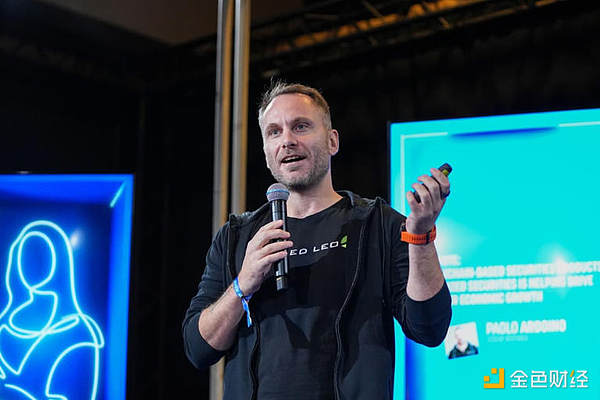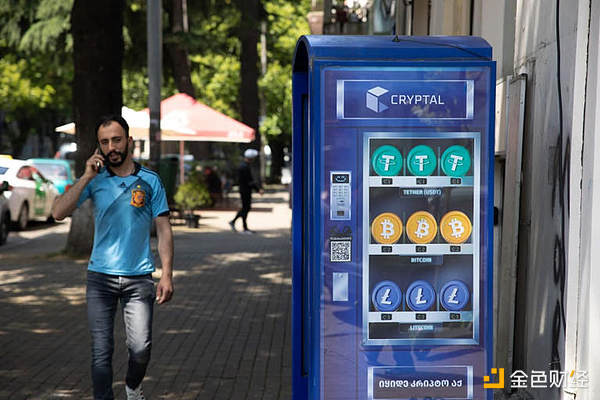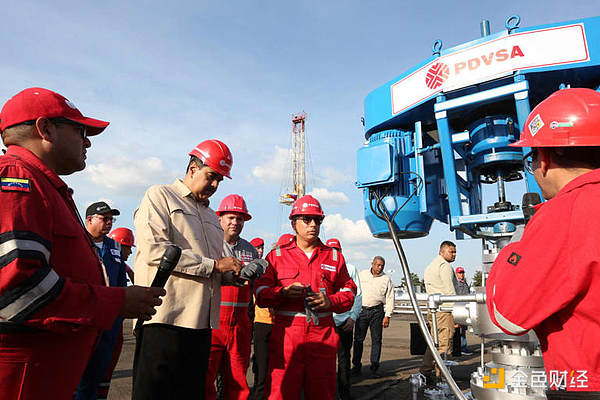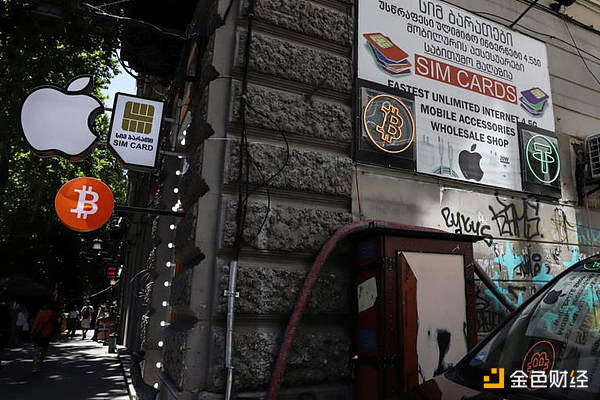Original title: The Shadow Dollar That’s Fueling the Financial Underworld
Author: Angus Berwick, Ben Foldy, WallStreetJ; Compiler: 0xjs@Golden Finance
A huge unregulated currency is undermining the US fight against arms dealers, sanctioned persons and fraudsters. Almost as much money flowed through its network last year as did Visa cards. Moreover, it recently made more profit than BlackRock, while having only a fraction of the number of employees.
Its name is Tether. This cryptocurrency has become an important part of the global financial system, with a daily transaction volume of up to $190 billion.
Tether is essentially a digital dollar, but it is privately controlled by a group of secretive owners in the British Virgin Islands, whose activities are largely unknown to the government.
Tether, known as a stablecoin for its 1:1 peg to the U.S. dollar, gained early popularity among cryptocurrency enthusiasts. But it has penetrated the financial underground, enabling parallel economies beyond the reach of U.S. law enforcement agencies.
In all countries where the U.S. government has restricted access to the dollar financial system (Iran, Venezuela, Russia), Tether has flourished as an anonymous dollar for moving money across borders.
Russian oligarchs and arms dealers transfer Tethers abroad to buy real estate and pay suppliers for sanctioned goods. Venezuela's sanctioned state oil company pays for goods in Tether. Drug cartels, fraud rings, and terrorist organizations such as Hamas use Tether to launder money.
Yet Tether is also a lifeline for people in dysfunctional economies such as Argentina and Turkey, which are mired in hyperinflation and hard currency shortages, using it to make everyday payments and protect their savings.
Tether is arguably the first successful real-world product of the cryptocurrency revolution that began more than a decade ago. It has made its owners very rich. Tether has $120 billion in assets, mostly risk-free U.S. Treasuries, but also positions in bitcoin and gold. Last year, it generated $6.2 billion in profits, $700 million more than BlackRock, the world’s largest asset manager.

Tether CEO Paolo Ardoino claimed earlier this year that its profit per employee was higher than any company, despite having fewer than 100 employees.
Tether wants to “build a fairer, more connected and more accessible global financial system,” Ardoino said in a May press release. He claimed that more than 300 million people are using Tether.
Through sanctions, Washington can cut adversaries off from the dollar, and thus much of the global trading system, because all dollar transactions involve U.S.-regulated banks. Tether’s popularity has upended those powers.
“We need a regulatory framework that doesn’t allow offshore dollar-backed stablecoin providers to play by different rules,” Wally Adeyemo, the Treasury’s deputy secretary, told the Journal, who singled out Tether in congressional testimony in April.
For this article, the Journal interviewed Tether users, researchers and officials and reviewed messages exchanged between intermediaries, court and company records and blockchain data.
Tether did not respond to requests for comment. The company said in May that it was working with law enforcement and was upgrading its ability to monitor transactions to guard against sanctions evasion. Tether voluntarily freezes digital wallets used to transfer tokens associated with sanctioned entities, the company said. Ardoino said Tether takes a "proactive approach to protecting our ecosystem from illicit activity."
How Tether Works
Tether Holdings, the company behind Tether, issues the virtual currency to a select group of direct customers, mostly trading firms, who wire in real-world dollars in exchange for Tether. Tether uses those dollars to buy assets, mostly U.S. Treasuries, to back the currency's value.
Once in the wider market, Tether can be traded for other tokens or traditional currencies through exchanges and local brokers. In Iran, for example, a cryptocurrency exchange called TetherLand allows Iranians to convert rials into Tether.
Tether reviews the identities of its direct customers, but much of its vast secondary market is unregulated. The tokens can be sent along a chain of digital wallets almost instantly to obfuscate their origin. In January, a United Nations report said Tether was the "go-to" for money launderers in Southeast Asia.
 Tether says it can track every transaction on the public blockchain ledger and can seize and destroy Tether in any wallet.
Tether says it can track every transaction on the public blockchain ledger and can seize and destroy Tether in any wallet.
But freezing wallets is like a game of whack-a-mole. From 2018 to June this year, Tether blacklisted 2,713 wallets on its two most popular blockchains that received a total of about $153 billion, according to crypto data provider ChainArgos. Of that huge sum, Tether was only able to freeze $1.4 billion because the rest of the funds had already been transferred out.
Tether's founders - including former plastic surgeon Giancarlo Devasini - created the currency in 2014. Acceptance of the stablecoin was initially low. William Quigley, an investor in the founding team, said the prospect of profiting from the billions accumulated was just a "fantasy."
He and other co-founders soon sold their shares to Devasini, who has been running Tether since then, according to people familiar with the matter. The reclusive billionaire lives in a modernist villa in the French Riviera enclave of Roquebrune-Cap-Martin, company records show. Ardoino, a fellow Italian, has become the face of Tether.
Tether’s entry into the crypto mainstream came during the 2020-2021 bull run, when traders used Tether to buy and sell risky bets. Its market value soared from $4 billion to nearly $80 billion.
Dollar for Everyone
In Venezuela, which has been mired in fiscal isolation by sanctions and economic mismanagement, Tether has found a ready user base.
In 2020, President Nicolas Maduro’s government was blocked by U.S. measures targeting state oil company Petroleos de Venezuela SA (PdVSA). In October of that year, Maduro’s parliament passed an “anti-blockade law” authorizing the government to use cryptocurrency to protect its transactions.
PdVSA began demanding payment for oil shipments in Tether, according to people familiar with PdVSA’s activities and transaction records. Purchase orders authorized by PdVSA typically instruct buyers to transfer Tether to a certain wallet address. Another approach is for an intermediary to exchange cash for Tether and put the tokens on a prepaid travel card so that the cardholder can make purchases using the cryptocurrency.

PdVSA's adoption of Tether was so widespread that it had another effect: Instead of returning oil revenues to the government, the middlemen PdVSA used for sales took the funds for themselves, leading to a scandal that brought down the oil minister.
“This use of cryptocurrencies only fuels huge corruption,” Rafael Ramírez, a former oil minister in Maduro’s government, said in an interview.
The Venezuelan government did not respond to requests for comment. The country’s attorney general said in April that middlemen’s use of cryptocurrencies made stolen funds “undetectable to the authorities.”
For ordinary Venezuelans, Tether has also become a lifeline. Inflation of up to 2 million percent has wiped out savings denominated in bolivars. Currency controls have made bank transfers abroad impractical.
Guillermo Goncalvez, a 30-year-old graduate in Caracas, runs a platform called El Dorado that offers peer-to-peer Tether trading for Venezuelans, connecting buyers and sellers directly.
El Dorado has more than 150,000 users who pay a fraction of what traditional remittance agencies charge: local shops convert daily earnings into Tether, Venezuelan immigrants send money back home, and freelancers get paid in USDT, another name for Tether.
“USDT is the digital dollar for all Venezuelans,” Goncalves said.
Enough money to fill a plane
In Russia, Tether is an important payment rail, The Wall Street Journal previously reported.
This year, a Russian government-backed research center drafted a confidential report that found Tether to be one of the most popular ways for importers to convert rubles into foreign currency. Some big institutions are also involved: Russian bank Rosbank arranges Tether transfers for clients to pay overseas suppliers, according to a company presentation published in June. A Rosbank spokesman did not respond to a request for comment.
It is also the currency of choice for Russia’s elite.
A gregarious broker named Ekaterina Zhdanova told colleagues in Telegram messages in 2022 and 2023 that she was arranging huge ruble-for-Tether trades for clients. The digital wallet she shared had moved more than $350 million in Tether, according to blockchain data.
Born in a village in Siberia, Zhdanova, 38, runs a concierge service that helps wealthy Russians get foreign visas and a travel agency that organizes luxury cruises. Her ex-husband is a top lieutenant to a billionaire Russian real estate developer.
Russia’s invasion of Ukraine and the sanctions that followed increased demand for her services.
Two months after the war broke out, Zhdanova relayed a client’s request to a group of large Russian cryptocurrency traders, according to chats on Telegram. The client, she said, had his own bank and wanted to buy about $10 million of Tether a month, for a total of $300 million, in exchange for cash to be delivered in the United Arab Emirates or Turkey.
After finding a dealer willing to take the deal, Zhdanova told the group chat that she could coordinate the collection of the cash.
“They’re going to come in a plane to get the cash,” she said.
The U.S. Treasury Department slapped sanctions on Zhdanova late last year, accusing her of moving cryptocurrency for unnamed oligarchs. French police detained her at a French airport as part of a separate money-laundering investigation in France, according to people familiar with the matter. She remains in custody. Zhdanova’s lawyer declined to comment.
“Anything. Everywhere.”
Tether is currently investing in startups that use Tether for everyday payments. The more Tether encourages people to use it, the more tokens it needs to issue, and so the more money it invests.
In Tbilisi, Georgia, a popular landing spot for Russian immigrants, the token’s symbol — a green “T” with a circle — gleams outside money-exchange shops with blacked-out windows. ATMs advertise that users can deposit bills in exchange for Tether.

Tether CEO Ardoino visited Georgia last year and approached government officials with a proposal to help expand the local crypto economy. They signed a partnership that Ardoino said would make the former Soviet republic a thriving payments hub. Tether has invested $25 million in local startups, according to Georgia’s Innovation Agency.
CityPay.io, a major recipient of Tether funding, has launched a Tether payment system for thousands of Georgian businesses. Hotels including the Radisson Blu Iveria in downtown Tbilisi have CityPay POS terminals, and the company has also partnered with a local real estate business to sell luxury apartments in exchange for Tether.
CityPay also offers international Tether payments to businesses, with monthly payments totaling up to $50 million, according to its Turkish CEO Eralp Hatipoglu. He said U.S. pressure on the global banking system has created these opportunities. Businesses exporting from Turkey to Georgia are questioned by correspondent banks, he said, and wire transfers take days.
CityPay's website claims "100% anonymous transactions," but Hatipoglu said they verify customer identities against sanctions lists and do not accept Russian businesses.
Tether said its goal is to expand CityPay to other emerging markets. At a cryptocurrency conference in a Tbilisi skyscraper in June, sponsored by Tether and attended by its expansion chief, banners advertised the currency’s use for everyday payments on CityPay. Guests lined up to pay for coffee with Tether.
One sign read: “Pay with USDT. Everything. Everywhere.”
 JinseFinance
JinseFinance
 JinseFinance
JinseFinance JinseFinance
JinseFinance Cheng Yuan
Cheng Yuan Beincrypto
Beincrypto Others
Others Beincrypto
Beincrypto
 Cointelegraph
Cointelegraph Cointelegraph
Cointelegraph Cointelegraph
Cointelegraph